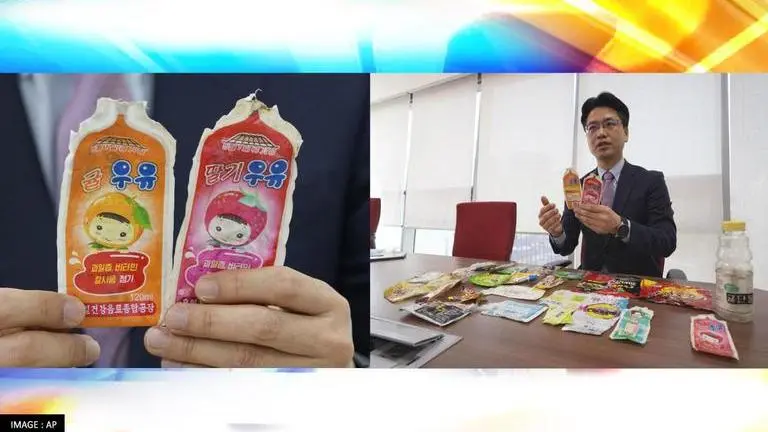Updated 22 April 2022 at 11:53 IST
Garbage from North Korea helps South Korean scholar study aspects of life in DPRK's cities
A South Korean scholar is often seen hunting trash coming from North Korea which he claims is his ‘treasure’ as it gives him a glimpse inside North Korea.
- World News
- 4 min read

As the waves sweep garbage onto the beaches of the South Korean islands, a professor at South Korea's Dong-A University is often seen hunting trash from North Korea which he claims to be his ‘treasure’ as it gives a glimpse inside North Korea that is closed to most foreigners. In a recent interview with The Associated Press, the 48 years old professor, Kang Dong Wan said, “This can be very important material because we can learn what products are manufactured in North Korea and what goods people use there”.
Even without the widespread border restrictions, Kang was obliged to utilise this unique information-gathering strategy, since COVID-19 has made it considerably more difficult for outsiders to learn what is going on within North Korea, as per The Associated Press report.
Further, Kang believes that the wide range, quantity, as well as the increasing sophistication of trash verifies North Korean state media reports that the supreme leader of the nation, Kim Jong Un, is attempting to push for the production of a variety of consumer products and a larger industrial design sector to satisfy the demands of his citizens and improve their living conditions.
What has Kang learnt about North Korea by collecting garbage?
Kang was astounded to find dozens of various types of colourful packaging materials, each for a specific product such as spices, ice cream bars, snack cakes, and milk and yogurt. It is worth noting that different types of graphic motifs, cartoon figures, and bright writing fonts appear in many of them. According to The Associated Press report, some of the designs of the North Korean products clearly resemble some South Korean and Japanese designs, while some appear to be out of date in terms of Western criteria.
Advertisement
Even though many specialists use official media broadcasts and publications to analyse the range of commodities and package designs in North Korea, Kang's garbage collection allows for more extensive research, according to Ahn Kyung-su, the director of DPRKHEALTH.ORG, a website devoted to North Korean health concerns.
According to Kang’s garbage findings, North Korea, for example, utilises tree leaves as a sugar replacement, which can be seen in the ingredients list of some juice pouches. Kang argues this is due to a scarcity of sugar and sugar-processing machinery.
Advertisement
Apart from this, the professor has discovered the presence of more than 30 different fake flavour enhancer packets which might indicate that North Korean households are unable to buy more expensive natural components such as meat and fish, which are used to prepare Korean soups and stews. According to The Associated Press report, because of health concerns, many South Koreans have ceased using them at home.
"The friend of housewives" or "accommodating women" are some of the slogans printed on detergent bags, which he has found while hunting trash. Through these phrases, it may reflect the condition of women in North Korea's male-dominated culture as it is assumed that only women perform such jobs.
Furthermore, some high exaggeration can be seen in some wrappers, one such example is a walnut-flavored snack cake, according to one source, it has greater protein than meat. Another claim is that collagen ice cream can help youngsters grow taller and have more supple skin. Another says that consuming a snack cake made with a certain type of microalgae will help you avoid diabetes, heart disease, and ageing.
To collect wrappers, Kang Dong Wan has toured five South Korean border islands off the nation's west coast since September 2020. He has gathered roughly 2,000 items of North Korean rubbish, including snack bags, juice pouches, candy wrappers, and drink bottles. During the interview, he said, “Was heartened after collecting more and more trash...and I determined that I must find out how many goods are in a country where we can’t go and what we can find from that trash”.
(Image: AP)
Published By : Anwesha Majumdar
Published On: 22 April 2022 at 11:53 IST
